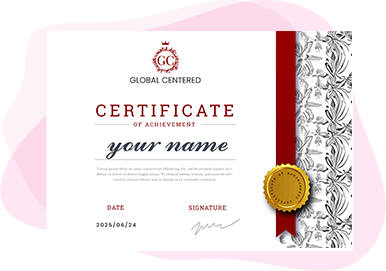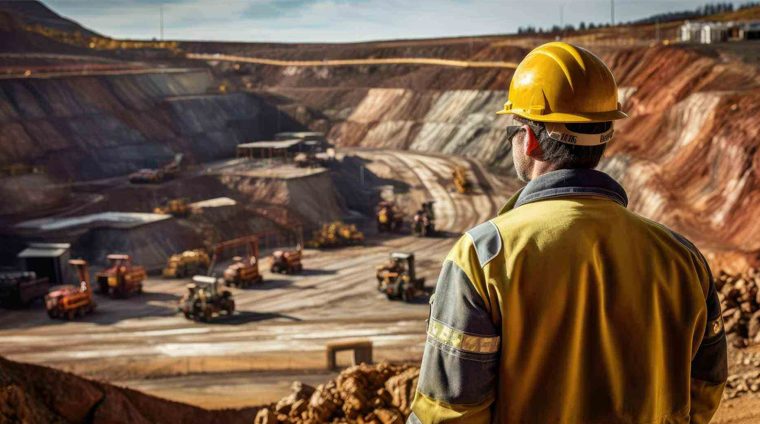Description
Introduction
This intermediate course is designed for professionals with basic knowledge of geology and mineral exploration. It covers advanced exploration techniques, geophysical and geochemical surveys, and data interpretation. Special emphasis is placed on phosphate, gold, and bauxite exploration in different geological settings.
Date
Day | Time | Price | Country |
|---|---|---|---|
Mon – Wed | 8:00 – 10:00 | $5/hrs | Turkey |
Tue – Thu | 18:00 – 19:00 | $5/hrs | Turkey |
Wed – Fri | 20:00 – 21:00 | $5/hrs | Turkey |
Sat – Sun | 18:00 – 19:00 20:00 – 21:00 | $8/hrs | Turkey |
This Training Course Will Highlight
- Advanced geological mapping and structural interpretation.
- Detailed geochemical sampling and analysis methods.
- Interpretation of geophysical survey data.
- Mineral resource estimation and reporting.
- Risk assessment and decision-making in mineral exploration.
Objectives
- Develop advanced exploration skills using geological, geochemical, and geophysical data.
- Conduct field mapping and drill core logging at an intermediate level.
- Learn best practices in geochemical survey design and data interpretation.
- Gain insights into resource estimation techniques.
- Improve decision-making processes for exploration investment.
Training Methodology
- Interactive technical discussions on exploration workflows.
- Practical exercises in core logging and mapping.
- Data interpretation sessions using real-world datasets.
- Field-based problem-solving case studies.
- Exploration strategy workshops for phosphate, gold, and bauxite.
- Case Study Discovery and evaluation of a major mineral deposit.
Organizational Impact
- Strengthens internal technical capabilities in mineral exploration.
- Improves efficiency in exploration program design and execution.
- Supports data-driven decision-making in mineral projects.
- Enhances collaboration between exploration and mining teams.
- Reduces risk in exploration investments.
Personal Impact
- Builds confidence in advanced exploration techniques.
- Improves analytical skills in geophysical and geochemical data interpretation.
- Strengthens resource estimation and reporting knowledge.
- Expands career growth opportunities in the exploration sector.
- Provides hands-on experience with industry-standard exploration tools.
Who Should Attend?
- Exploration geologists with 2+ years of experience.
- Mining engineers focusing on mineral discovery.
- Project managers in exploration companies.
- Environmental and sustainability professionals in mining.
- Government officials involved in mineral exploration oversight.
- Consultants working in mineral resource development.
- Graduate students specializing in economic geology.
Course Outline
Day 1
Advanced Geological Mapping and Structural Analysis- Field-based geological mapping techniques.
- Structural interpretation of ore-forming environments.
- Use of remote sensing and GIS in mineral exploration.
- Rock alteration mapping and mineral zoning.
- Integration of field data with geophysical datasets.
- Structural controls on gold mineralization.
Day 2
Geochemical Exploration and Pathfinders- Advanced geochemical survey design.
- Sampling strategies for soil, stream sediment, and rock geochemistry.
- Geochemical signatures of phosphate, gold, and bauxite.
- Data processing and interpretation methods.
- Anomalous element detection and mapping.
- Geochemical exploration success stories.
Day 3
Geophysical Exploration and Data Interpretation- Magnetic and Gravity Methods Application in phosphate, gold, and bauxite exploration.
- Electromagnetic and Induced Polarization (IP) Techniques How to detect mineralized zones.
- Seismic Surveys in Mineral Exploration Identifying deep-seated ore deposits.
- Radiometric and Remote Sensing Techniques Using satellite imagery for mineral targeting.
- Integration of Geophysical Data in Exploration combining multiple datasets for decision-making.
- Interpretation of geophysical anomalies in a mineral-rich region.
Day 4
Drilling Techniques and Resource Estimation- Types of Drilling Methods in Mineral Exploration Diamond drilling, RC drilling, and auger drilling.
- Core Logging and Drill Sample Analysis Best practices for documenting drill results.
- Mineral Resource Classification and Estimation Understanding JORC, NI 43-101, and CRIRSCO standards.
- Ore Grade and Cut-off Grade Determination Economic factors influencing mineral resource classification.
- 3D Geological Modeling and Interpretation Visualization techniques for ore body assessment.
- Estimation of phosphate, gold, and bauxite resources in an active mining project.
Day 5
Risk Assessment, Environmental Considerations, and Future Trends- Risk Factors in Mineral Exploration Geological, financial, and regulatory risks.
- Environmental and Social Impact of Mineral Exploration Managing community relations and regulatory compliance.
- Advancements in Artificial Intelligence and Machine Learning AI-driven mineral target identification.
- Automation and Digitalization in Exploration Geology How technology is transforming mineral discovery.
- Sustainability and ESG Considerations in Exploration Projects Best practices for responsible exploration.
Cancellation policy
no refund is accepted
Certificate


Free
Skill level Intermediate
100% positive reviews
Language: English
Assessments: Self
Step Into a World of Knowledge and Growth
Imagine a place where learning is not just about theory
Courses you might be interested in
Introduction This advanced training program is designed for experienced geologists, exploration managers, and mining professionals seeking to enhance their expertise in exploration geology for phosphate, gold, and bauxite deposits. The...
-
0 Lessons
Free
Introduction This beginner-level course introduces participants to the fundamental principles of exploration geology. It covers the basic methods used to locate and evaluate mineral deposits, with a focus on phosphate,...
-
0 Lessons
Free
Free

